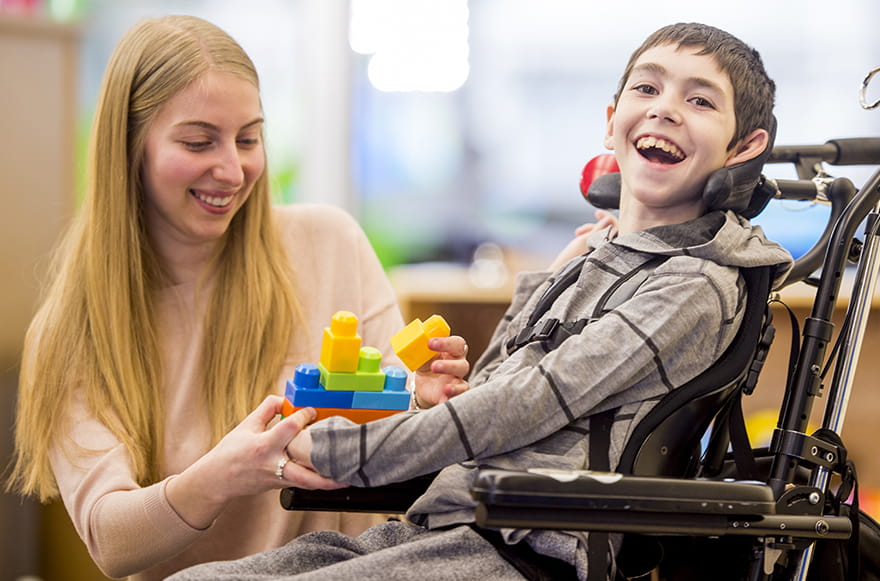Understanding the significance of National Disability Insurance Scheme (NDIS) plans is crucial for individuals with disabilities and their families. NDIS plans for Disable people are tailored to provide support and services that enhance the quality of life for people facing various disabilities. These plans play a pivotal role in promoting inclusivity, independence, and overall well-being.
What Are NDIS Plans and How Do They Support People with Disabilities?
NDIS plans for Disable people are personalized roadmaps designed to address the unique needs and goals of individuals with disabilities. These plans encompass a range of services such as healthcare, education, employment support, and daily living assistance. By offering a comprehensive approach, NDIS plans aim to empower disabled individuals to lead fulfilling lives and actively participate in their communities.
Why Should Disabled Individuals Consider Applying for NDIS Plans?
Applying for NDIS plans opens doors to a multitude of opportunities and support systems. Disabled individuals should consider NDIS plans as a means to access resources that facilitate personal development, skill-building, and social integration. These plans act as a safety net, ensuring that essential needs are met while fostering an environment where disabled individuals can thrive.
When Is the Right Time to Start Planning for NDIS Support?
The timing of NDIS plans for Disable people is critical. It is advisable to start the process as early as possible to allow for thorough assessment, goal setting, and resource allocation. By initiating the planning process well in advance, individuals with disabilities can maximize the benefits of NDIS support throughout various stages of their lives.
What Key Services and Supports Do NDIS Plans Provide for Disabled People?
NDIS plans for Disable people cover a wide spectrum of services tailored to meet the diverse needs of disabled individuals. These may include assistive technology, home modifications, therapy services, and community participation programs. Understanding the array of services available is essential for recipients to make informed decisions about their unique requirements.
Why is Personalized Planning Crucial in NDIS for Individuals with Disabilities?
Personalization lies at the core of NDIS plans for Disable people. Recognizing and prioritizing the individual needs, aspirations, and challenges of disabled individuals ensures that the NDIS plan is effective and impactful. Tailoring plans to specific circumstances fosters a sense of ownership and empowerment among recipients.
When and How Can NDIS Plans Be Reviewed to Ensure Continued Effectiveness?
Regular review of NDIS plans for Disable people is essential to adapt to changing circumstances and evolving needs. Evaluating the effectiveness of the plan allows for adjustments to be made, ensuring that the support provided remains relevant and beneficial over time.
What Role Do Families Play in the NDIS Planning Process for Disabled Individuals?
Families are integral to the success of NDIS plans for Disable people. Their involvement in the planning process is crucial, as they often have valuable insights into the needs and preferences of the disabled individual. Collaboration between families and service providers enhances the overall effectiveness of the NDIS plan.
Why NDIS Plans Focus on Goal Setting for a Better Quality of Life?
Goal setting is a fundamental aspect of NDIS plans for Disable people. Establishing clear and achievable goals enables individuals with disabilities to work towards a better quality of life. These goals serve as milestones, guiding the implementation of the plan and measuring progress in areas such as education, employment, social engagement, and personal development.
When Does NDIS Funding Kick In and How Is It Utilized?
Understanding the timing and utilization of NDIS funding is essential for recipients. NDIS funding kicks in once the plan is approved, and it is allocated based on the identified needs and goals. Learning to navigate and optimize the use of funds ensures that the available resources contribute effectively to the individual’s well-being.
What Are the Common Challenges Faced by Disabled Individuals in NDIS Planning, and How to Overcome Them?
Despite the benefits, disabled individuals may encounter challenges in the NDIS planning process. These challenges could include communication barriers, bureaucratic complexities, and navigating the various available services. Acknowledging these challenges and seeking support from advocacy groups and service providers is crucial to overcoming obstacles and ensuring a smooth planning experience.
Conclusion
NDIS plans for Disable people for disabled people are instrumental in creating a framework that fosters inclusivity, independence, and overall well-being. The personalized nature of these plans ensures that individuals with disabilities receive tailored support, empowering them to achieve their goals and lead fulfilling lives. By understanding the importance of NDIS plans, navigating the planning process, and actively participating in the implementation and review stages, disabled individuals and their families can harness the full potential of the support system provided by the National Disability Insurance Scheme.


